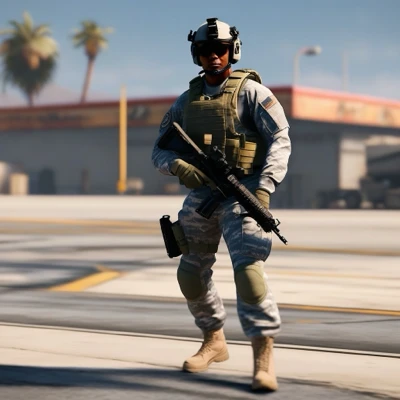Commonly Asked Military Defense Lawyer FAQs
Gonzalez & Waddington – Military Defense Lawyer FAQ
How long have you been defending service members in UCMJ cases?
I have been defending service members since 2001. I have defended service members in complex UCMJ trials, administrative actions, and worldwide courts-martial. My practice focuses exclusively on military defense across all branches, giving me nearly two decades of experience navigating command politics, investigations, Article 120 cases, and global military justice systems.
What percentage of your law practice is focused on military defense?
Nearly 100% of my practice is dedicated to UCMJ defense, courts-martial, Article 120 cases, administrative separations, and military investigations. I represent service members full-time worldwide, allowing me to stay ahead of prosecutorial trends and build highly specialized defense strategies tailored to each branch.
Which types of UCMJ cases do you handle most frequently?
I most often defend service members accused of sexual assault (Article 120), domestic violence, aggravated assault, false statements, fraternization, and serious misconduct. I also handle administrative separation boards, GOMORs, clearance issues, and command investigations, focusing exclusively on high-stakes, career-ending cases.
Have you previously served as a JAG officer?
While I am not a former JAG, my entire career has been dedicated to defending service members worldwide. I use a strategic, civilian-driven approach supported by former JAGs, military experts, and forensic specialists to counter government tactics, uncover investigative weaknesses, and protect military careers.
How do you negotiate with military prosecutors and commanders?
I negotiate from a position of preparation and leverage. I analyze evidence early, identify weaknesses, consult experts, and use strategic pressure to push for dismissals, reductions, or alternative resolutions. My focus is protecting rank, reputation, retirement, and long-term opportunities for every service member.
What is your experience with general, special, and summary courts-martial?
I have extensive experience defending clients at every court-martial level, including felony-level general courts-martial involving Article 120, violence, and complex forensic issues. I prepare aggressively, conduct detailed investigations, use expert witnesses, and build fact-driven narratives designed to win at trial.
Do you handle appeals and post-trial actions?
Yes. I represent service members in clemency requests, Article 69/73 reviews, sentence relief, post-trial errors, discharge upgrades, and appellate matters. I focus on overturning wrongful convictions, correcting legal errors, and securing long-term relief for clients facing harsh or unjust outcomes.
Do you handle administrative matters such as security clearances?
Yes. I defend clients in security clearance investigations, revocations, Statements of Reasons, GOMORs, NJP appeals, command investigations, and administrative separation boards. These actions can end careers quickly, so I build strong, evidence-driven responses to protect clearances and service member futures.
What is your experience with discharge review boards and records correction boards?
I represent veterans before DRBs and BCMRs, preparing detailed petitions supported by service records, expert statements, and legal argument. I work to overturn unfair discharges, remove inaccurate documents, and restore benefits. My goal is correcting injustice and repairing long-term career harm.
How We Defend Florida Service Members
What results in military defense do you find most meaningful?
The most meaningful results are clearing a service member’s name and saving a career threatened by false allegations or command pressure. Winning acquittals or dismissals—especially in Article 120 cases—protects freedom, rank, retirement eligibility, and long-term reputation.
What is your fee structure for military defense cases?
I use transparent, flat-fee structures for each stage of representation. Military families deserve clarity, so I outline expected costs upfront with no hidden fees. When appropriate, I offer flexible payment arrangements tailored to the complexity of each case.
What extra costs should clients expect during a court-martial?
Some cases require expert witnesses, digital-forensics specialists, medical experts, private investigators, or travel. I explain these needs early and show how each resource strengthens the defense. High-stakes UCMJ cases often require expert support to challenge government evidence.
Do you work with expert witnesses and forensic specialists?
Yes. I work with leading forensic psychologists, digital forensics experts, medical professionals, and former CID/NCIS/OSI investigators. These specialists help expose weaknesses in the government’s case and strengthen cross-examination at trial.
What should service members do—and avoid doing—after being accused?
Accused service members should remain silent, follow legal advice, preserve evidence, and avoid discussing the case with command or peers. They should not post online or attempt explanations. Controlled communication prevents accidental damage to the defense strategy.
How do you involve clients in the defense strategy?
I keep clients fully informed, explain all legal options, and collaborate on major decisions. Military justice moves quickly, so I ensure clients understand the evidence, risks, and strategic choices that shape their defense narrative.
Why is Gonzalez & Waddington considered a top-rated military defense firm?
Gonzalez & Waddington is internationally recognized for winning high-stakes UCMJ trials, defending Article 120 cases, and representing service members worldwide. Our experience, trial strategy, expert network, and record of success make us one of the most trusted names in military defense.
What makes Gonzalez & Waddington different from other military lawyers?
We focus exclusively on military defense, using advanced cross-examination, forensic analysis, and strategic investigation to dismantle weak allegations. We take complex cases globally and provide personalized, aggressive representation rooted in decades of experience.
Why do service members hire your firm instead of relying on appointed JAG counsel?
JAG attorneys work hard but often lack the time, resources, and experience needed for complex felony-level cases. Service members hire us for independent, specialized, and aggressive representation that protects careers, retirement, and long-term freedom.
How do you approach defending Article 120 sexual assault allegations?
I use a forensic-driven defense: credibility analysis, digital evidence review, psychological evaluation, expert consultation, and narrative strategy. Article 120 cases require early intervention, aggressive investigation, and precise cross-examination to expose weak government theories.
What results has Gonzalez & Waddington achieved in military courts-martial?
We have secured acquittals, dismissals, and major reductions in high-risk UCMJ cases worldwide. We regularly stop separations, reverse GOMORs, protect clearances, and win contested trials involving sexual assault, violence, and complex allegations.


